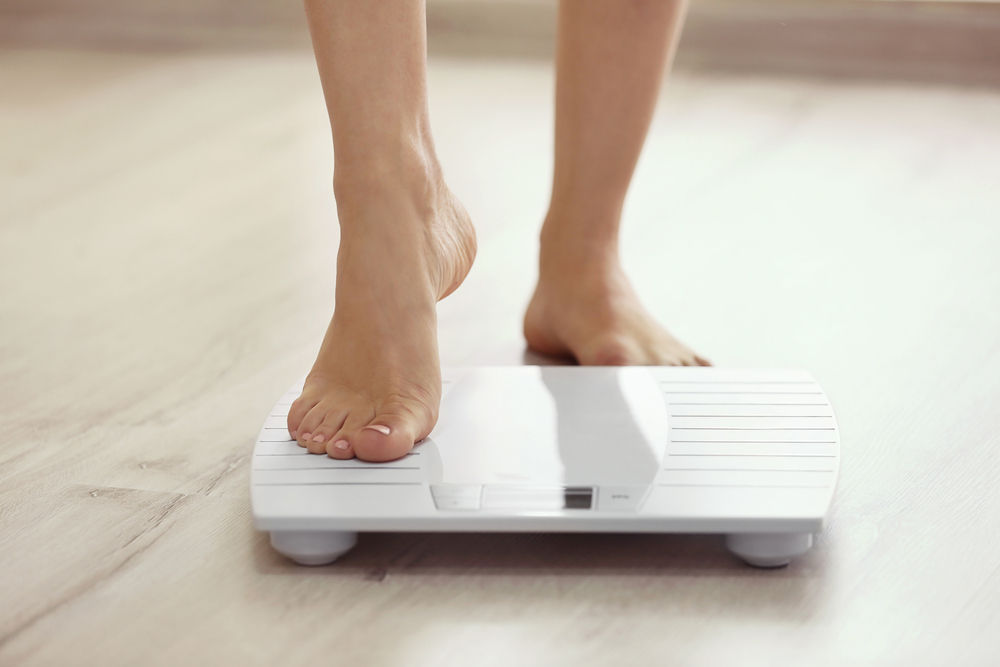Are you trying to get pregnant and struggling to conceive? The answer may be easier than you think.
Roughly 12 percent of all infertility cases can be traced to weight problems in women— split pretty much evenly between weighing too little and weighing too much, according to the American Society for Reproductive Medicine (ASRM).
This was a subject that Dr. David and I tackled very thoroughly in our bestselling fertility book Making Babies: A Proven 3-Month Program for Maximum Fertility. So for a deeper discussion of this subject (and a lot more helpful fertility advice), it’s worth picking up a copy and giving it a read.
But here’s the short story:
Heavily overweight women suffer from infertility at a rate approaching double that of average-weight women. Roughly the same is true for women who are underweight.
Men, too, face fertility problems related to being overweight. Heavily overweight men are 50% more likely than average-weight men to be infertile. And it turns out that couples in which both partners are overweight are three times more likely not to be pregnant after a year of trying than are couples of normal weight.
Just 10% over or under your ideal body weight is all it takes to make a difference in your fertility. The Harvard Nurses’ Health Study, a large, long-term research project on a variety of health topics, found that overweight women took twice as long to get pregnant as normal-weight women. Underweight women experienced an even greater gap compared to women of normal weight— it took them four times as long to get pregnant.
A tangle of factors connect weight and fertility, and no one has teased them all apart yet. One important component is the estrogen made in fat cells: the more fat cells, the more estrogen. Increasing estrogen prevents ovulation (this is what birth control pills do). Heavily overweight women often have irregular and/or infrequent periods, thanks in part to this estrogen interference, as well as periods without ovulation or with inadequate ovulation.
Being overweight also increases androgens (“male” hormones) in women which can impair ovulation. In addition, those estrogen-producing fat cells are throwing off inflammatory substances that can reduce fertility. And excess weight comes with an increase in insulin levels, yet another contributor to the fertility issues overweight women have.
Women who are underweight— who don’t have enough body fat— can’t produce enough estrogen. The physical stress of being inadequately nourished lowers FSH and LH levels, which creates low estrogen. This chain reaction results in irregular cycles, follicles that can’t develop properly, and inadequate or even nonexistent ovulation.
What You Can Do About It
The vast majority of women (more than 75%) struggling with infertility caused by being overweight will conceive naturally once their weight stabilizes at a healthy point. Results are even more dramatic for underweight women: 90 percent of them can expect to conceive once they reach their ideal weight.
If you are overweight, the loss of 5 – 10% of your body weight, ideally with the addition of some exercise, will significantly boost your chances of pregnancy even if it doesn’t bring you all the way to your “ideal” weight.
If you are underweight, putting on only a few pounds can make the difference.
Whether you need to gain or lose, now is the time to take action. And here at the Yinova Center we are experts at helping couples have a healthy pregnancy so we’ll be only too happy to help you. You are never going to have a stronger motivation to manage your weight than you do right now. Wanting to wear a smaller-size wedding dress or impress an old boyfriend at a high school reunion can’t hold a candle to your desire to conceive a child. Not even your own health and well-being can. So take advantage!
In Making Babies, Dr. David and I identified 5 fertility types so that we could give our readers specially tailored fertility advice. You can read more about the types and take a quiz to identify your type here.
Once you have taken the quiz and identified your fertility type you’ll find a complete nutritional program for each type in Making Babies. We also have the following information on this website specially designed to help you achieve a balanced weight and reach your pregnancy goals.





It’s never easy to get a handle on your weight, but if you are like most of our patients, ready and willing to do anything to have a baby, why not start now?
Managing your weight has to be easier than undergoing surgery or enduring months and months of treatment with powerful chemical hormones and toxic drugs, with all the attendant short- and long-term side effects and risks. You’ll also enjoy a long list of benefits to your general health, and if weight is the root cause of your fertility problem, normalizing it is the thing that’s going to work best anyway.




